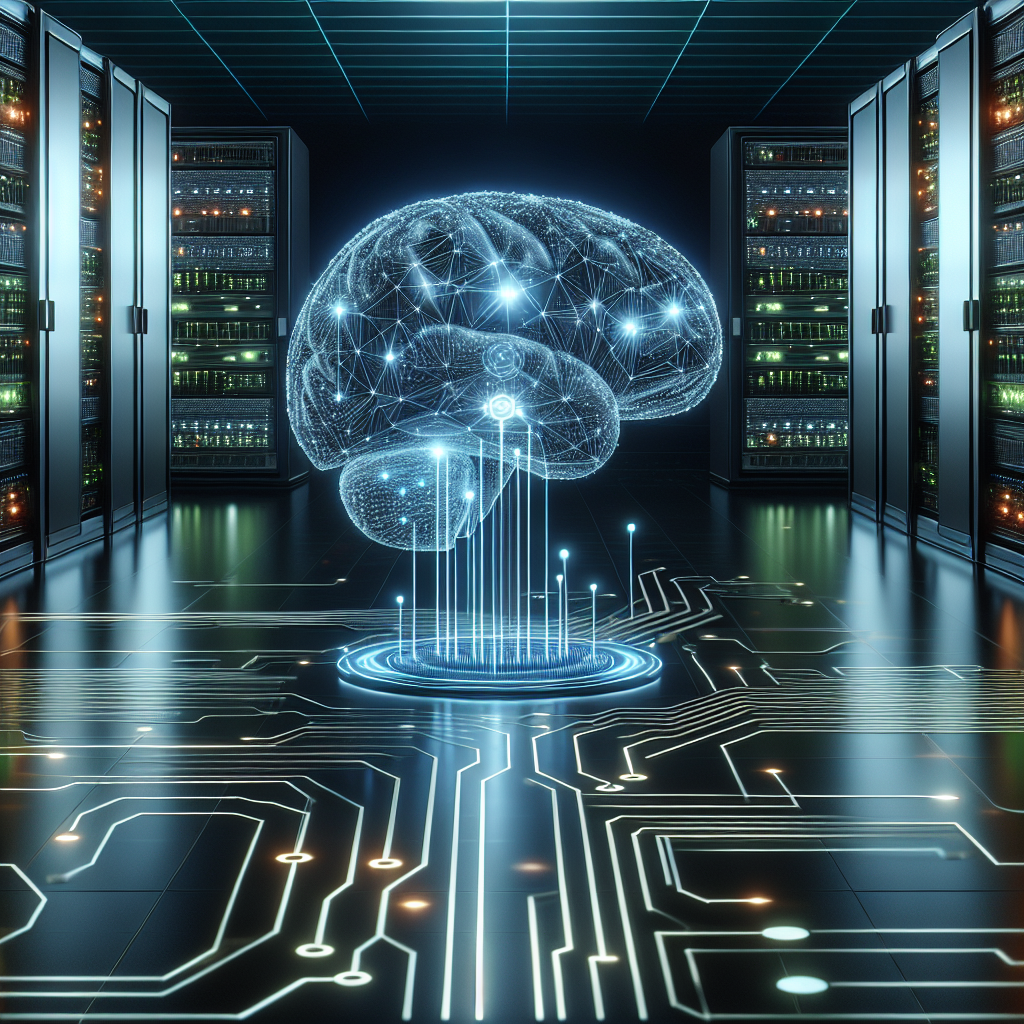Unleashing the Power of AGI: A Look into the Future of Technology
Artificial General Intelligence (AGI) is a term that has been gaining traction in the field of artificial intelligence (AI) in recent years. AGI refers to a type of AI that possesses human-like intelligence and cognitive abilities, allowing it to perform a wide range of tasks and learn from its experiences in a similar way to humans.
While current AI systems are capable of performing specific tasks, such as playing chess or recognizing faces, they lack the general intelligence and adaptability of humans. AGI, on the other hand, has the potential to revolutionize industries, solve complex problems, and even surpass human intelligence in the future.
In this article, we will explore the concept of AGI, its potential applications, and the implications of unleashing its power in the future of technology.
What is AGI?
AGI is a type of artificial intelligence that is designed to mimic human cognitive abilities, such as reasoning, problem-solving, learning, and understanding natural language. Unlike narrow AI, which is designed to perform specific tasks, AGI is capable of performing a wide range of tasks and adapting to new situations without the need for human intervention.
AGI is often seen as the holy grail of AI research, as it has the potential to revolutionize industries, solve complex problems, and even surpass human intelligence in the future. While AGI is still in its early stages of development, researchers and technologists are working tirelessly to bring this vision to reality.
Applications of AGI
The potential applications of AGI are vast and varied, ranging from healthcare to finance to entertainment. Here are some of the key areas where AGI could have a significant impact:
1. Healthcare: AGI could revolutionize the healthcare industry by diagnosing diseases, predicting patient outcomes, and developing personalized treatment plans. AGI-powered systems could analyze vast amounts of medical data to identify patterns and trends that human doctors might miss, leading to more accurate diagnoses and better patient outcomes.
2. Finance: AGI could transform the financial industry by predicting market trends, identifying investment opportunities, and detecting fraudulent activities. AGI-powered systems could analyze market data in real-time to make informed decisions and optimize investment strategies, leading to higher returns for investors.
3. Education: AGI could enhance the learning experience by personalizing educational content, adapting to students’ individual needs, and providing real-time feedback. AGI-powered systems could create customized lesson plans, identify areas of weakness, and recommend additional resources to help students succeed in their studies.
4. Transportation: AGI could revolutionize the transportation industry by improving traffic flow, reducing accidents, and optimizing routes. AGI-powered systems could analyze traffic patterns, weather conditions, and road closures to provide real-time navigation and routing recommendations to drivers, leading to more efficient and safer journeys.
Implications of AGI
While the potential applications of AGI are exciting, there are also significant implications to consider, both positive and negative. Here are some of the key implications of unleashing the power of AGI in the future of technology:
1. Economic Impact: AGI has the potential to disrupt industries and reshape the workforce, leading to job displacement and the creation of new roles. While AGI-powered systems could automate routine tasks and increase productivity, they could also lead to job losses in certain sectors, requiring workers to adapt to new skills and roles.
2. Ethical Concerns: AGI raises ethical concerns around privacy, bias, and accountability, as these systems have the potential to make autonomous decisions that impact individuals and society. AGI-powered systems could collect and analyze vast amounts of data, raising concerns about data privacy and security, as well as potential biases in decision-making processes.
3. Societal Impact: AGI could have a profound impact on society, changing the way we work, communicate, and interact with one another. AGI-powered systems could improve the quality of life for individuals, enhance productivity, and drive innovation, but they could also exacerbate existing inequalities and create new challenges for policymakers and regulators.
4. Security Risks: AGI raises security risks around cyberattacks, data breaches, and malicious use, as these systems could be vulnerable to exploitation by bad actors. AGI-powered systems could be used to manipulate information, spread disinformation, and disrupt critical infrastructure, posing a threat to national security and public safety.
FAQs
Q: When will AGI be available to the public?
A: The development of AGI is still in its early stages, and it is difficult to predict when AGI will be available to the public. Researchers and technologists are working tirelessly to advance the field of AI and bring AGI to reality, but it is likely to be several years before AGI is widely available.
Q: What are the challenges of developing AGI?
A: Developing AGI poses several challenges, including the need for massive computational power, the lack of understanding of human cognition, and the ethical implications of creating superintelligent systems. Researchers are working to overcome these challenges by developing new algorithms, conducting experiments, and engaging in discussions around the ethical implications of AGI.
Q: How will AGI affect the job market?
A: AGI has the potential to disrupt industries and reshape the workforce, leading to job displacement and the creation of new roles. While AGI-powered systems could automate routine tasks and increase productivity, they could also lead to job losses in certain sectors, requiring workers to adapt to new skills and roles.
In conclusion, AGI has the potential to revolutionize industries, solve complex problems, and even surpass human intelligence in the future. While there are significant implications to consider, both positive and negative, the development of AGI holds great promise for the future of technology. Researchers and technologists are working tirelessly to bring this vision to reality, and it is likely to be several years before AGI is widely available to the public.

